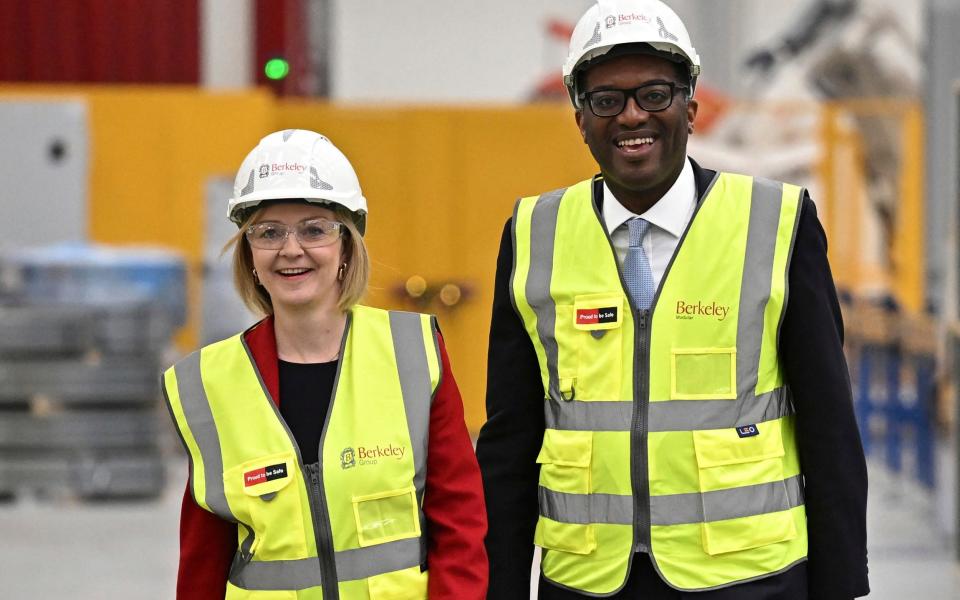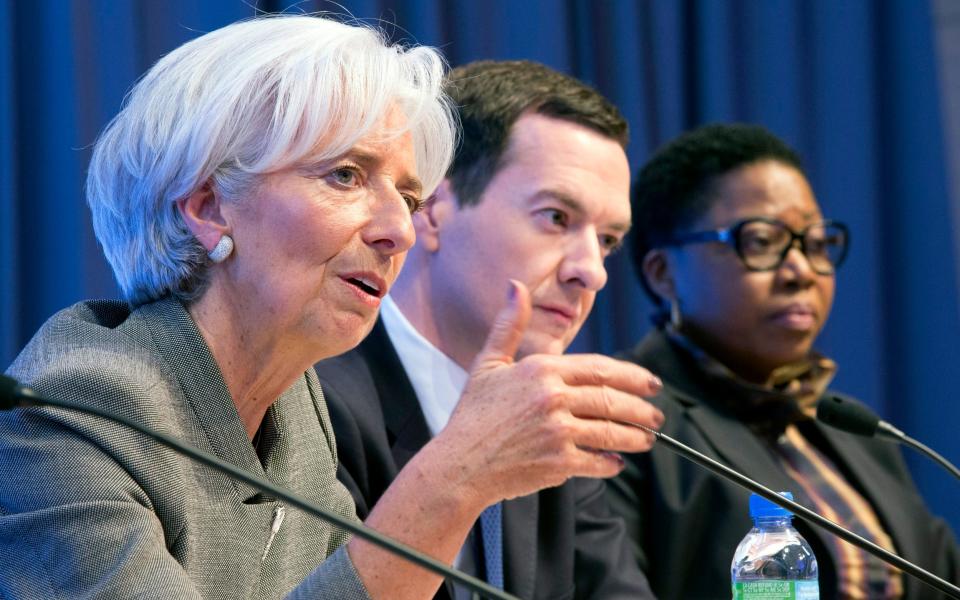Inside the IMF: the 'Brownite' global banker attacking Liz Truss

When the International Monetary Fund holds its first in-person annual meeting since before the pandemic next month in Washington DC, one guest among the world’s economic power brokers will draw special attention. Kwasi Kwarteng will arrive having been accused by his hosts of threatening financial stability in only his third week as Chancellor.
“We do not recommend large and untargeted fiscal packages at this juncture, as it is important that fiscal policy does not work at cross purposes to monetary policy,” the IMF warned in highly unusual criticism of a G7 government on Tuesday night that urged Kwarteng to reverse his tax cuts.
It was not the reaction Kwarteng and Liz Truss, the Prime Minister, were hoping for just days after a major announcement mere weeks into their time in charge.
The Conservatives have long played it by the book when it comes to fiscal policy. In its 12 years so far in Government, it has broadly tried to bring down the budget deficit, aside from emergencies in which it has borrowed heavily.

This used to be very much in line with the global consensus, including the IMF.
International economists loosened up a little, after tight policy following the financial crisis may have slowed the recovery. The Conservatives broadly thought they were doing the same.
But the scale of borrowing, alongside the energy emergency, seems to have spooked markets, and the IMF has joined in the Truss-bashing with a degree of enthusiasm.
This was not a scheduled statement. It came in response to media questions on the UK’s borrowing plans and the market reaction.
Observers were shocked by the IMF’s tone on this occasion. Adam Posen, a former Bank of England policymaker now at the Peterson Institute for International Economics, tweeted that “it is bizarre that the IMF and [US Treasury] have so publicly preemptively called out another G20 nation's domestic policy” when he can see no “urgent risk” to the wider world.
Lord Frost, the former Brexit minister, said the IMF is “still in the intellectual world of Gordon Brown,” arguing that following the organisation’s “highly conventional economic policies” has “produced years of slow growth and weak productivity”.
The IMF has been in the bad books of many Brexit-backing Conservatives ever since the referendum.
Tuesday’s warning is not the first from the IMF to have triggered accusations of political meddling.
Christine Lagarde, the French former head of the fund and now president of the European Central Bank, famously offered a grovelling apology in 2014 after her economists warned former chancellor George Osborne his austerity policies were “playing with fire”.
The IMF had downgraded the UK’s annual growth forecast to just 0.7pc in 2013 - but in the event the economy actually grew by 1.7pc.
“Do I have to go on my knees?” Ms Lagarde asked, when challenged about the figures later.

Two years later, however, she enraged Brexiteers by standing next to Mr Osborne at a press conference and warning the economic consequences of leaving the EU would be “pretty bad, to very, very bad”.
Brexit-backing Conservatives suspect the watchdog has been unreasonably downbeat in its assessments of the British economy ever since.
In the latest update in July, the IMF predicted Britain would grow more slowly than any other G7 economy next year, predicting growth of 0.5pc. The next-slowest in its ranking is Italy, expected to grow at 0.7pc.
Its update will be watched closely - other international groups believe Britain is far from the most vulnerable to the economic havoc unleashed by Russia’s invasion of Ukraine. The Paris-based OECD, for instance, thinks Britain will stagnate next year but that Germany will plunge into outright recession.
Kristalina Georgieva, who took over from Lagarde in 2019 after a stint as chief executive of the World Bank, has not been without her own controversies either.
The Bulgarian former eurocrat, who served as a vice-president in Jean Claude-Juncker’s EU Commission, was forced to defend her reputation and reportedly fight off what some economists described as an attempted coup at the IMF.
It was alleged that, while working in her previous job, she had pressured World Bank staff to flatter China’s economic numbers at a time when the fund was seeking more cash from Beijing.
However, following a series of meetings the IMF’s directors said there was no conclusive evidence of wrongdoing and decided to keep her in post. Georgieva later insisted there was “no doubt in the credibility” of the fund itself.
So how seriously should Truss take the dressing down?
The IMF has long been the champion of financial orthodoxy. Established, funded and run by the governments from across the world, it exists to step in when something goes wrong.
When a government runs out of money, the institution sends in i
ts experts with policy advice and tax and spend recommendations, and only dishes out the rescue funds if its orders are followed.
That generally means immediate austerity.
The fate of Greece may be the most famous instance of recent years. Athens ran out of money in dramatic style, after years of living beyond its means, often in breach of the eurozone rules to which it had supposedly subscribed when joining the single currency.
Without the flexibility afforded by a floating exchange rate or the ability to print its own money, the country plunged into recession and needed help.
That came with strict terms and conditions, slashing government spending and ramping up taxes, thereby felling governments through waves of riots and protests.
Britain had its own bailout back in the 1970s.
In 1976 James Callaghan’s Labour Government faced rampant inflation in the wake of an energy crisis, the biggest budget deficit since the Second World War and mounting pressure on the pound.
Sterling was a particularly big issue at the time, soon after the end of the fixed exchange rates of the Bretton-Woods system, and the government sought a bailout of $3.9bn, equivalent to £2.3bn at the time, or 5pc of Government revenues.
As with Greece, this came with strict conditions to rein in spending.
This time, however, the IMF has no leverage over the British Government - their warning is one of opinion, rather than one which carries immediate consequences.
The UK is a member state of the IMF like any other, albeit one which usually has a little more clout than most thanks to its status as a founder of the organisation after the Second World War and which stumps up more than 4pc of its funds, and so has a similar voting share.
That pays for bailouts, funds the advice which the IMF is dishing out right now - and means the Chancellor has every right to state his case at next month’s awkward meeting.

 Yahoo Movies
Yahoo Movies 